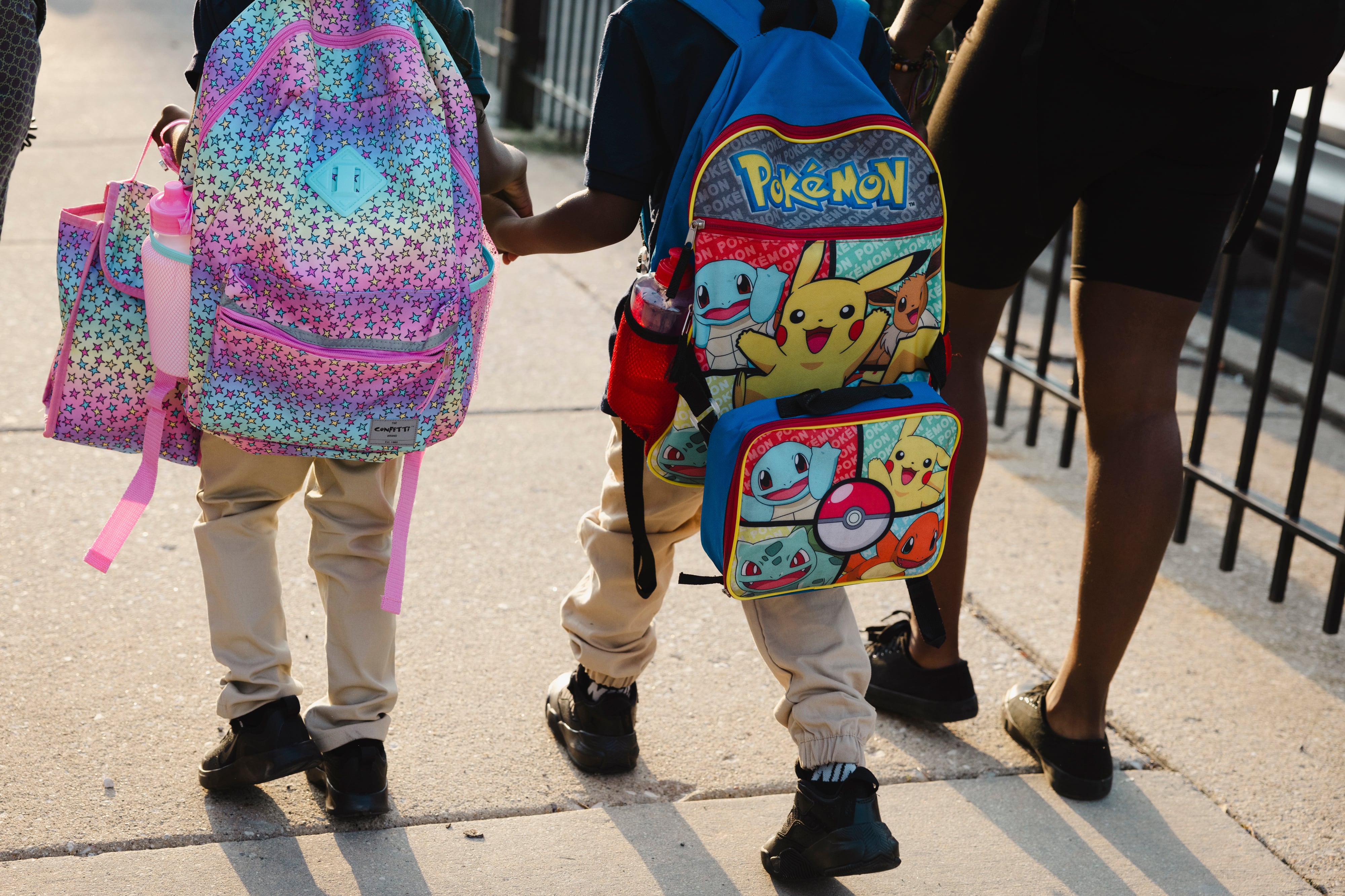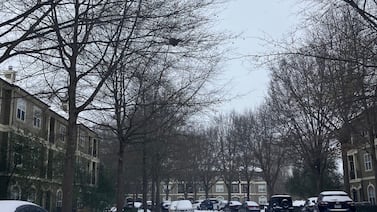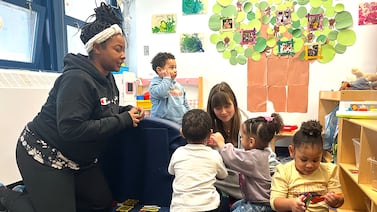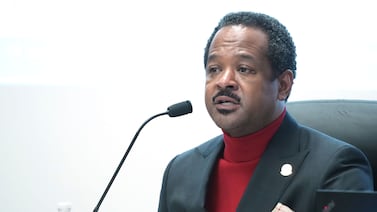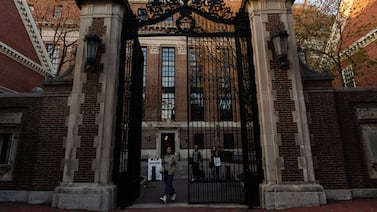Sign up for Chalkbeat Chicago’s free daily newsletter to keep up with the latest news on Chicago Public Schools.
As Chicago Public Schools students return to class this week, families may feel the effects of the district’s belt-tightening over the summer as it worked to close a $734 million deficit.
Even as the first day starts — Monday for K-12 students and Tuesday for those in pre-K — the district and Chicago Board of Education have not yet adopted a budget that covers this school year. The board, which is already divided on the district’s proposal, must legally adopt a budget by Aug. 29, and is expected to vote on a plan Aug. 28.
Families and kids may also feel the impact of changes related to the new Chicago Teachers Union contract, including smaller classes and more staff.
Across the district, Chalkbeat will be watching an array of items, including potential changes to federal policy, the district’s enrollment changes, and the state’s focus on school quality — and how those impact student learning and the public’s perceptions of schools.
Here are five things we’re watching this school year.
Will enrollment drop this year?
After more than a decade of dipping enrollment, Chicago began seeing a slight uptick in the number of kids attending CPS schools — likely due to the influx of thousands of migrant families from Central and South American countries.
Public schools have seen drops in enrollment across the nation for several reasons, including decreasing birth rates. Last year, a total of 325,305 students attended Chicago Public Schools by the 20th day of school, or the day the district officially counts how many students it’s serving.
But it’s unclear if enrollment will increase again this year, especially as immigration to the U.S. slows as President Donald Trump ramps up immigration enforcement.
Chicago Public Schools staff are instructed by the district not to allow immigration enforcement into their buildings unless they have a judicial warrant.
But advocates worry that Trump’s aggressive deportation goals will have a chilling effect. The president’s policies, they worry, could discourage newcomer kids not to attend school or even leave the city.
How well are Illinois students learning?
The state of Illinois is set to implement changes in measuring when students are proficient in core subjects and is reconsidering how it labels schools — potentially impacting the public’s understanding of how well students are doing.
The Illinois State Board of Education recently approved changes to cut scores that determine when a student is proficient in a subject and expects to see an increase in how many students are considered to be learning core subjects well. The changes came after state leaders said the previous cut scores did not reflect the reality of what students were learning or their ability to enter college without remediation courses.
The state also worked with dozens of teachers on collecting feedback for potentially changing its own learning standards and benchmarks for how well schools are doing. Chicago Public Schools also rolled out new school accountability dashboards this year, which are supposed to include more traditional metrics like test scores and information about students’ well-being.
With budget cuts and new teachers contract, how will school day change?
After nearly a year of contentious negotiations, the Chicago Teachers Union reached a deal with Chicago Public Schools in the spring over a four-year deal that, in part, implements a series of changes that students may notice in the classroom.
At the same time, CPS is planning tens of millions of dollars in cuts that could impact things like meals and how clean schools will be.
Under the new teachers contract, class sizes will be lowered to 25 students in kindergarten, and the contract requires a teaching assistant for classes with more than 23 students. In grades 4-8, the class size will decrease to 30 students.
The contract also adds hundreds of new positions over the next three years, including more teacher assistants, case managers for students with disabilities, and nurses. Unrelated to the contract, the district is also restructuring its special education department and implementing staffing changes related to students with disabilities.
And, kids could be getting more recess or time in enrichment classes. The contract increased preparation time for elementary school teachers by 10 minutes. Schools will meet this requirement by getting an additional 10 minutes of recess where schools are not currently following a state requirement for a half-hour recess, district officials have said. But schools may also add specialty classes to give homeroom teachers more prep time.
As it worked to close its $734 million deficit, the district announced more than $165 million in cuts. That included layoffs to central office and crossing guards, cutting 480 full-time custodial positions, and hot meals for students.
How could Trump’s agenda impact schools?
In some ways, the Trump administration has competing interests that could have sweeping impacts on Chicago’s schools.
Trump wants to invest fewer federal dollars in the nation’s schools — which almost resulted in a loss of about $60 million for CPS — and any funding restrictions could impact CPS’ already tight budget plan.
At the same time, his administration wants a hand in what schools teach. The federal government has opened a civil rights investigation into CPS’ Black Student Success Plan, claiming that the plan is a form of race-based discrimination that seeks more resources for “favored” students. CPS has declined to comment on the matter.
If the federal government decides the district has violated federal law, it could decide to punish the district by pulling funding or reaching a settlement that impacts the district’s approach to serving students with the most needs.
What’s next in CPS’ leadership saga?
Chicago Public Schools has experienced profound leadership turnover over the past year. Since October, the entire mayor-appointed Board of Education resigned, the former CEO was fired, and a new 21-member, partially appointed, partially elected school board was seated for the first time in Chicago’s history. That board then hired interim CEO Macquline King and is searching for a permanent CEO.
And King now finds herself in the crosshairs of the city and mostly appointed members of the board after proposing a budget that doesn’t include a pension reimbursement to the city or a loan.
The board hoped to find a new CEO as early as September, but it’s unclear how quickly it will narrow down candidates for interviews. Some have raised questions in recent months about who legally has the authority to hire the CEO.
Whomever the board chooses will be charged with overseeing the district as it faces financial pressures. And, if that person stays in the job through 2027, they will be the first CPS CEO to oversee the district with the city’s first fully elected board.
Becky Vevea contributed.
Reema Amin is a reporter covering Chicago Public Schools. Contact Reema at ramin@chalkbeat.org.

